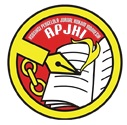RIBA DAN BUNGA BANK DALAM PERSPEKTIF TEORI NASAKH MAHMUD MUHAMMAD THAHA
(1) IAIN Syekh Nurjati Cirebon
(*) Corresponding Author
Abstract
Abstract
The purpose of this article is to conduct a study of the verses of usury in the Qur'an using Mahmoud Muhammad Thaha's nasakh theory, then proceed with an analysis of the application of the nasakh theory to bank interest, which so far there are still many disagreements among Muslim scholars regarding the law, whether it includes usury or not usury. The method used in writing this article is to use qualitative methods with analytic descriptive analysis with the main data source coming from library data (library research). The results of this study found that the practice of riba regardless of its type, form, quality, and quantity is prohibited. Because usury is contrary to the spirit of justice in the distribution of income and assets of Muslims. The prohibition of usury has the same position as the prohibition of other forms of a prohibition against other practices that can damage the order of life in society, such as the prohibition of drinking and adultery, which according to the view of all scholars are (mani'ah jami). 'ah) thorough and universal.
Keywords: Nasakh theory; Riba; Bank interest; Makkiyah; Madaniyah.
Full Text:
PDFReferences
Akbar, D. S., & Abbas, A. F. (2020). Pemikiran Abdullah An-NaIm Tentang Teori Evolusi SyariAh (Nasakh) Dan Relevansinya Dengan Metode Istinbath Hukum Islam. Al Hurriyah: Jurnal Hukum Islam, 5(1), 1-21.
Al Fikri, M., & Mustaniruddin, A. (2021). STUDI KRITIS TERHADAP PEMIKIRAN MAHMUD MUHAMMAD TAHA TENTANG KONSEP NASAKH AL-QUR’AN. TAJDID: Jurnal Ilmu Ushuluddin, 20(2), 431-455.
Aravik, H., Hamzani, A. I., & Khasanah, N. (2021). Dari Konsep Ekonomi Islam Sampai Urgensi Pelarangan Riba; Sebuah Tawaran Ekonomi Islam Timur Kuran. Islamic Banking: Jurnal Pemikiran dan Pengembangan Perbankan Syariah, 6(2), 215-232.
Arifin, M. P., & Misaeropa, M. (2019). Penafsiran Ali Al-Shobuni Tentang Ayat-Ayat Riba. Al-Munir: Jurnal Studi Ilmu Al-Qur'an dan Tafsir, 1(1), 135-163.
Azima, F. (2017). Semantik Al-Qur’an (Sebuah Metode Penafsiran). TAJDID: Jurnal Pemikiran Keislaman Dan Kemanusiaan, 1(1), 45-73.
Buhari, A. T. (2020). Bank Dan Riba: Implikasinya Dalam Ekonomi Islam. Al-Insyiroh: Jurnal Studi Keislaman, 6(1), 127-136.
Chapra, M. U. (2008). The nature of riba in Islam. Millah: Jurnal Studi Agama, 8(1).
Firdaus, R. (2019). Perbedaan Pandangan Fuqaha Ihwal Bunga Bank dan Riba. EKONOMIKA SYARIAH: Journal of Economic Studies, 3(2), 47-60.
Ghofur, A. (2016). Konsep Riba dalam Al-qur’an. Economica: Jurnal Ekonomi Islam, 7(1), 1-26.
Hamid, Edy Suandy. Akar Krisis Global dan Dampaknya Terhadap Indonesia. Makalah dalam Seminar Ekonomi Islam. 23 Desember 2008.
Hidayat, R. (2022). Thought Construction of Nasikh Mansukh: Study of Abdullah Ahmad An-Na'im. Jurnal Ilmiah Mahasiswa Raushan Fikr, 11(1), 17-30.
Istiqomah, L. (2020). Konsep Riba Dalam Al-Qur’an Dan Implikasinya Bagi Perekonomian. An-Nisbah: Jurnal Perbankan Syariah, 1(1), 73-88.
Karim, Adiwarman. (2001). Ekonomi Islam, Suatu Kajian Kontemporer. Jakarta: Gema Insani Press.
Lewis, Mervin K dan Latifa M Algaoud. (2001). Islamic Banking. Cheltenham: Edward Elgar Publishing.
Majid, R. T. (2020). Riba dalam Al-Qur’an (Studi Pemikiran Fazlurrahman dan Abdullah Saeed). Muslim Heritage, 5(1), 61-86.
Muhyiddin, Muhammad. (2008). Keajaiban Shadaqoh. Menguak Keajaiban Shadaqoh terhadap Kekayaan dan Kebahagiaan Anda. Cet.XIV, Yogyakarta: Diva Press.
Muhadjir, Noeng. (2000). Metodologi Penelitian Kualitatif. Edisi IV, Yogyakarta: Rake Sarasin.
Naiem, Abdullahi Ahmed. (1996). Toward an Islamic Reformation. Civil Liberties, Human Right, and International Law, New York: Syracuse University Press.
Neuman, W. Laurence. (1996). Social Research Methods: Qualitative and Quantitative Approaches, Boston: Allyn and Bacon.
Nurhikmah, C. (2021). Riba Menurut Al-Quran dan Hadits dalam Perspektif Ekonomi Islam. Mufham: Jurnal Ilmu Al-Qur’an dan Tafsir, 1(1), 57-66.
Qardawi, Yusuf. (2002). Hikmah Pelarangan Riba. terj. Setiawan Budi Utomo, Jakarta: Akbar Press.
Rahayu, A. E., Nurhasanah, N., & Ihwanudin, N. (2021). Perbandingan Konsep Riba dan Bunga Bank Menurut Yusuf Qaradhawi Dan Muhammad Sayyid Thantawi Serta Implikasinya Terhadap Perbankan Syariah. Jurnal Ilmiah Ekonomi Islam, 7(2), 1179-1191.
Rahman, Fazlur. (1963). Riba and Interest. Karachi: Institute of Islamic Research.
Rosia, R. (2020). Disparatis Riba Dan Bunga Bank; Perspektif Hermeneutika Double Movement Fazlur Rahman. Jurnal An-Nisbah: Ekonomi Syari’ah, 7(2).
Rahayu, A. E., & Nurhayati, N. (2020). Telaah Kritis Pemikiran Abdul Mannan Tentang Riba dan Bunga Bank. Islamic Banking: Jurnal Pemikiran dan Pengembangan Perbankan Syariah, 6(1), 47-68.
Saeed, Abdullah. (1996). Islamic Banking and Interest. A Study of Prohibition of Riba and its Contemporary Interpretation, Leiden-New York-Koln: E.J. Brill.
Salikin, A. D. (2016). Menyimak Argumen Mahmud Thaha Tentang Naskh dan Reformasi Syariah. Mahkamah: Jurnal Kajian Hukum Islam, 1(1).
Shihab, Q. Tafsir al-Misbah (Pesan, Kesan dan Keserasian dalam Al-Qur’an). Vol.1. Cet. IX. (Jakarta: Lentera Hati, 2007). Hlm. 588.
Sholih, M. (2020). Larangan Riba, Bunga dan Bahaya Riba Perspektif Ekonomi Islam. AL-SYIRKAH, 1(2), 30-41.
Thaha, Mahmud Muhammad, The Second Massage of Islam. Trans. Abdullah Ahmed An-Nai’em, New York: Syracuse University Press, 1996.
Wartoyo. (2010). Bunga Bank: Abdullah Saeed vs Yusuf Qaradhawi (Sebuah Dialektika Pemikiran antara Kaum Modernis dengan Neo-Revivalis), Jurnal La Riba, Vol. 4 No. 1, 98-118
Wartoyo. (2016). Konsep Naskh Dalam Teori Hukum Mahmud Muhammad Thaha. Mahkamah, Vol. 1 No. 2, 144-165
DOI: 10.24235/jm.v8i1.12736
Article Metrics
Abstract view : 52 timesPDF - 12 times
Refbacks
- There are currently no refbacks.





